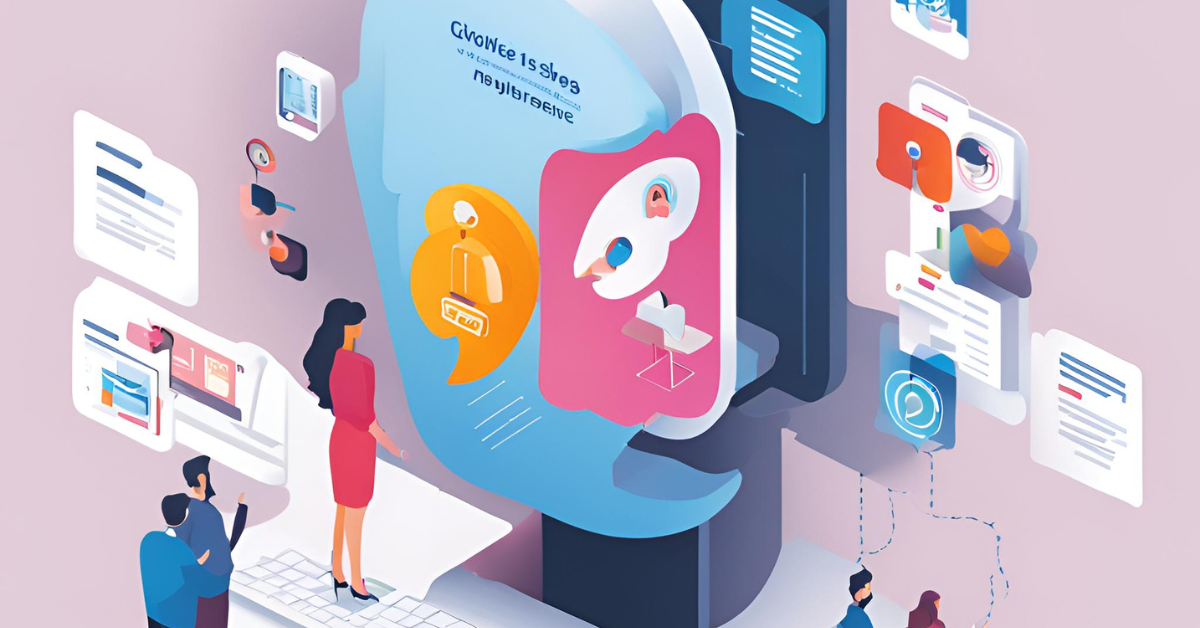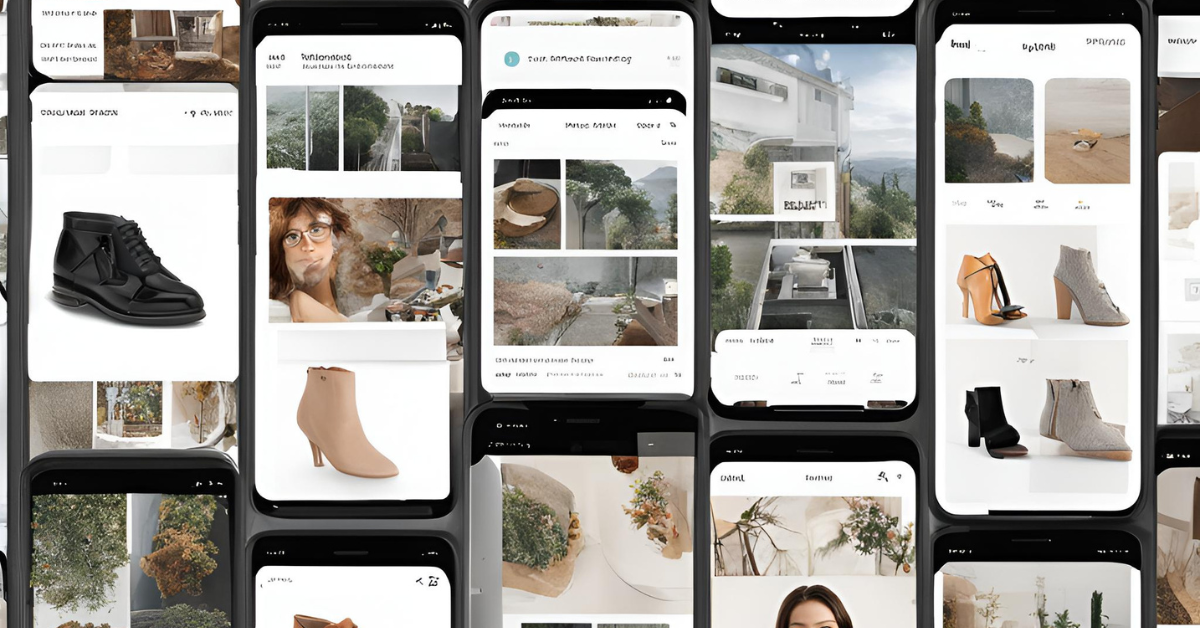Welcome to the new frontier of personalized marketing! It’s no longer a sci-fi fantasy but an evolving reality, thanks to Artificial Intelligence (AI). In this post, we’ll dive deep into how AI is reshaping the marketing landscape, making personalized marketing smarter, more targeted, and incredibly effective. We’ll explore the latest trends, tools, and case studies from 2024, and what you should expect in 2025. Whether you’re a marketer, advertiser, or designer, this article will equip you with actionable insights to future-proof your strategies. Buckle up—it’s going to be an exciting ride!
The Rise of AI in Personalized Marketing
Let’s start with the basics. Personalized marketing isn’t new, but what’s groundbreaking is how AI is turbocharging it. In the past, personalization was mostly about using basic demographic data like age, gender, and location. Today, AI has taken personalization to a whole new level, leveraging vast amounts of data to create highly targeted and individualized customer experiences.
Imagine this: instead of sending out a blanket email to your subscriber list, AI allows you to create customized emails based on individual shopping habits, past purchases, social media behavior, and even real-time data like the weather in the recipient’s location. AI allows you to move from a “one-size-fits-all” approach to a “one-to-one” model of customer engagement.

What is AI-Powered Personalization?
In essence, AI-powered personalization uses machine learning algorithms, natural language processing (NLP), and predictive analytics to analyze consumer data and automate decision-making processes. AI not only interprets data but also learns from it, meaning that it continually improves how it personalizes interactions over time.
Key Benefits of AI in Personalized Marketing:
- Hyper-targeted content: Tailoring messaging based on real-time behavioral data.
- Dynamic customer journeys: Automating and adapting touchpoints across platforms.
- Scalability: Implementing personalization at scale without manual input.
2024 Trends in AI-Driven Personalization
The world of AI in marketing saw some massive developments in 2024. Here’s a look at the key trends that are already shaping the way brands approach personalization.
1. AI-Powered Chatbots as Personalization Engines
In 2024, chatbots moved beyond basic customer service tasks to become vital tools for personalized marketing. Brands like Sephora and Nike are using AI-driven bots to engage customers in real-time, offering product recommendations based on browsing history, preferences, and even voice conversations.
Forecast for 2025: Expect more sophisticated, conversational AI tools that can create hyper-relevant product suggestions in real-time.

2. Predictive Analytics for Hyper-Personalized Content
Predictive analytics has transformed content marketing. Tools like HubSpot and Marketo now utilize AI to anticipate user behaviors, creating content tailored to what the consumer will likely want, rather than just reacting to past interactions.
Example: In 2024, Spotify used predictive analytics to recommend playlists, not just based on what listeners had enjoyed before, but by predicting moods, times of day, and even current activities.
3. AI-Generated Visual Content
We’ve already seen AI create written content, but 2024 saw the rise of AI-generated visual content tailored to individual users. Brands are using tools like Deep Dream Generator and DALL-E 3 to create personalized, engaging imagery that resonates with individual consumers on social media.

The Tools Powering AI-Enhanced Personalization
1. Adobe Sensei
Adobe’s AI engine helps marketers by predicting audience behavior and optimizing ad placements in real-time. Sensei uses machine learning to analyze patterns and automate personalization across digital experiences.
2. Segment
Segment allows marketers to unify consumer data across platforms and use machine learning to predict customer needs. This makes it a powerful tool for creating targeted, personalized marketing campaigns.
3. Dynamic Yield
A personalization platform that uses AI to tailor web content, product recommendations, and even entire web pages based on user behavior. McDonald’s used Dynamic Yield to customize drive-thru menus based on factors like weather and local buying trends.
4. HubSpot’s AI-Powered CRM
HubSpot has integrated AI into its CRM, allowing businesses to personalize email campaigns, social media ads, and even website content based on customer behaviors, preferences, and historical interactions.

AI-Powered Case Studies from 2024
1. Netflix’s AI-Driven Personalization Engine
Netflix is famous for its recommendation algorithms, but in 2024, it took this a step further. Using advanced AI, Netflix began personalizing not just movie suggestions, but even the thumbnails and descriptions based on individual viewing habits. This resulted in a 12% increase in click-through rates from the recommendations section.
2. Starbucks’ Personalized AI-Based Loyalty Program
Starbucks ramped up its AI-based personalization efforts in 2024 with its revamped rewards app. The AI-powered system uses predictive analytics to send tailored offers based on individual purchase histories and real-time factors like the time of day or weather conditions. Starbucks reported a 5% increase in app-based purchases within three months of rolling out the update.
3. Nike’s Hyper-Personalized Product Recommendations
Nike implemented a new AI-based recommendation engine in 2024, which uses user behavior, purchase history, and social media interactions to offer product recommendations. By the end of the year, Nike saw a 15% boost in conversion rates for users who engaged with personalized recommendations.

Forecasts for AI in Marketing in 2025
So, what’s on the horizon for AI and personalized marketing in 2025?
1. AI and Predictive Emotional Targeting
AI will evolve to predict not just what customers want, but how they feel at a given moment. Using sentiment analysis, brands will be able to adjust marketing messages in real-time to match the emotional state of consumers.
2. Voice-Activated Personalized Ads
With the rise of smart speakers, AI-driven voice ads will become more personalized. Brands will use voice assistants like Alexa and Google Home to deliver personalized ads based on voice search history, purchases, and even tone of voice.
3. Hyper-Personalized Visual Experiences
By 2025, brands will use AI to create entirely personalized visual experiences on websites and apps. Imagine landing on a homepage that dynamically changes its look, feel, and product displays based on your past interactions, creating a more engaging and relevant experience.

Practical Tips for Marketers: Implementing AI Personalization
Here are some actionable tips for leveraging AI-powered personalization in your marketing strategy.
1. Invest in Predictive Analytics
AI can predict customer behavior and preferences with impressive accuracy. Implement predictive analytics tools to tailor your content, emails, and ads based on where the customer is in their journey.
2. Use Dynamic Content
AI allows you to create dynamic content—emails, web pages, and even ads that change based on who’s viewing them. This can significantly boost engagement rates.
3. Implement Chatbots for Real-Time Personalization
Chatbots powered by AI can provide personalized customer service and product recommendations, which not only enhances customer satisfaction but can also drive sales.
4. Leverage AI for Email Segmentation
Gone are the days of manual email segmentation. Use AI to automatically segment your audience based on behaviors, preferences, and engagement, ensuring that each customer receives the most relevant content.
5. Track and Optimize in Real-Time
AI tools like Google Analytics 4 allow marketers to track and optimize campaigns in real-time, automatically adjusting your strategy based on how users interact with your content.

The Future of Personalized Marketing with AI
AI is no longer just a tool for optimizing operations—it’s transforming the very way we engage with consumers. With AI, marketers can now offer personalization at a scale and precision previously unimaginable. As we look to 2025, one thing is clear: brands that fail to adopt AI-driven personalized marketing will be left behind.
The future is AI, and it’s making marketing more human, more dynamic, and more exciting than ever before.





